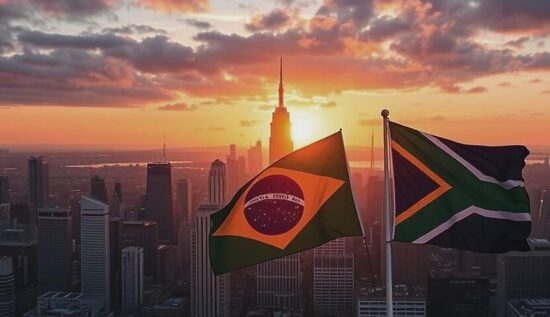Japan’s perception of a multipolar world is marked by anxiety, as it is deeply embedded in the liberal international order and the US-led unipolar moment. According to the Munich Security Index 2025, Japan is particularly concerned about the end of the unipolar moment, China’s rise and the prospects of a new multipolar order. On the other hand, Tokyo has been preparing for these geopolitical changes for a longer period. The QUAD initiative demonstrates Japan’s willingness to defend itself and the order it values.
In contrast, Brazilian leaders view the emergence of a multipolar world as an opportunity to reform outdated power structures and give the Global South a stronger voice. During its G20 presidency last year, Brazil prioritized reforms of global governance, alongside the Global South’s priorities, such as poverty reduction and food security. With its significant natural resources, Brazil has the potential to increase its global influence and shape debates on food, climate and energy security. However, maintaining its traditional policy of non-alignment might become more challenging in the face of growing geopolitical tensions and the prospect of a second Trump term, given his threatening Monroe Doctrine and exclusive dominance over Latin America.
South Africa’s enthusiasm for multipolarity is inextricably linked with its criticism of the existing international order, particularly with regard to non-representative international institutions. Pretoria regularly criticizes Western states for the selective application of international law. South Africa was once seen as a “natural leader” of Africa and an international moral exemplar. However, with the rise of anti-Western sentiment in the country and the decline of human rights and international law promotion, South Africa has also lost international standing.
In conclusion, the authors argue that visions of multipolarity also polarize. This makes it increasingly challenging to peacefully adapt to the existing order, avoid new arms races, prevent violent conflicts within and between states, enable inclusive economic growth and address common threats like climate change, which the respondents consistently rate highly on the Munich Security Index.
As the “great and not so great powers” cannot address these challenges alone, their cooperation will be decisive. The fact that many in the international community still value the rule-based multilateralism, as seen in the recent adoption of the Future Pact, suggests that there is a willingness to cooperate. However, the world may need a bit of “de-polarization” to make this cooperation successful. 2025 will show whether this is possible or if the world will become even more divided.





